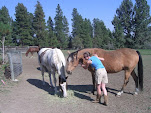

The duck situation needs a little updating.
As you know, I picked up 2 eggs a few weeks back. After reading about federal law and that the Mallard doesn't sit on her eggs until she has laid her full clutch, it made sense to return the eggs to her nest. I checked on her nest every day as she added an additional egg. She was up to 6 eggs!
The next morning I went out to admire the arrival of number 7 and found that some critter had raided her nest and eaten the eggs! Just a mess of shells on the ground.
Calcium devastation: destruction of 6 precious eggs and the calcium she depletes herself of as she lays her clutch. Honestly, I'm not cut out for the occasional cruelty of nature.
She started another nest with one egg. I thought I was doing the right thing by trying protect the egg and I put a bucket over it at night. I ran out at 7am the next morning to remove it so she could add her next egg. She didn't.
I guess she wanted to lay before I got out there, so she has abandoned that nest. For a few days I searched for her new nest but couldn't find where she was laying. I thought maybe she had given up.
Then the other day, I was out looking around...surely there has to be another nest somewhere. There are at least 20 female Mallards and our 4 domestic females. Someone has to be laying!
I found two new nests in a thick of cut tree branches. As of this morning, one nest has 5 eggs and the other has 3. But here's the thing, 1 of those 3 looks white like a domestic duck egg. So, if this is the case, whose nest is it? Who will sit on the eggs? If it's the Mallard, will she accept the domestic duck?
Lesson learned: I must admire from afar. No touching. No protecting. But there is that 1 lone egg that still sits up by the pond in the once bucketed nest.
I think when her nest has at least 8 eggs, I'll add that loner. I do believe it's hers.
Oh, and we did get 1 white domestic egg sitting on the ground by the pond. Those we can eat.
